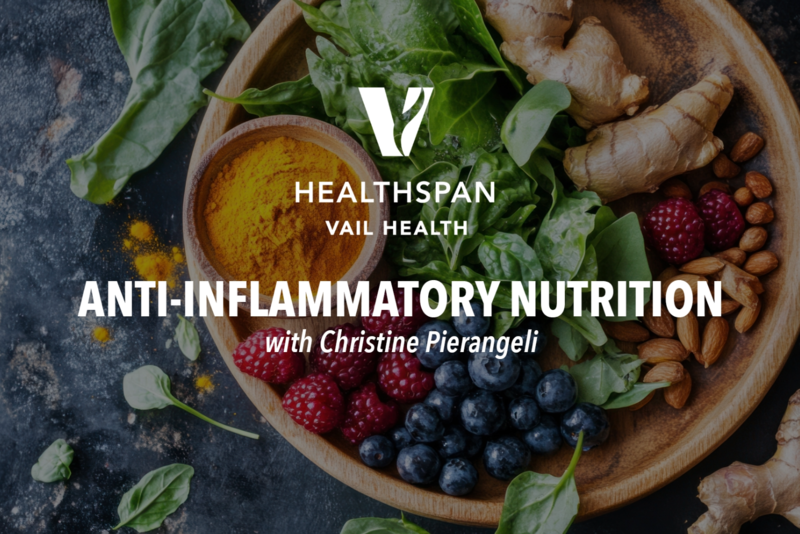News
Chronic Inflammation: What It Is, Why It’s Harmful and How to Reduce It

Inflammation in the body is a normal and healthy response to injury or attack by germs. We can see it, feel it and measure it as local heat, redness, swelling and pain. Inflammation is the body’s way of getting more nourishment and immune activity into an area that needs to fend off infection or heal. But inflammation isn’t always helpful. It also has great destructive potential, which we see when the immune system mistakenly targets the body’s own tissues in autoimmune diseases like type 1 diabetes, rheumatoid arthritis and lupus.
What is Systemic Inflammation
Systemic inflammation refers to chronic, imperceptible, low-level inflammation. The extent of chronic inflammation is influenced by genetics, a sedentary lifestyle, too much stress and exposure to environmental toxins. Diet has a huge impact, so much so that we believe that most people in our part of the world go through life in a pro-inflammatory state as a result of what they eat.When Inflammation is Harmful
Mounting evidence suggests that over time chronic inflammation sets the foundation for many serious, age-related diseases including heart disease, cancer and neurodegenerative conditions such as Alzheimer’s and Parkinson’s diseases. Recent evidence indicates that systemic inflammation may also contribute to psychological disorders, especially depression. It is also linked to memory loss and cognitive decline, increased cardiovascular risk, compromised digestive function, loss of muscle tone, weight gain, accelerated skin aging, joint pain and loss of mobility.How to Avoid Chronic Inflammation
To avoid chronic inflammation, stop eating refined, processed and manufactured foods, including the following. These foods upregulate inflammation, and create extra acidity in the tissues.- Sugar
- Refined carbohydrates (white flour, white rice, white potatoes)
- Gluten, for those with a sensitivity
- Conventionally-raised meat and dairy
- Processed meat
- Trans fats (partially hydrogenated oils)
- Mono-sodium glutamate (MSG) and other food additives and preservatives
- Highly processed vegetable and seed oils, such as canola, corn, sunflower, peanut, grapeseed, and safflower
- Artificial sweeteners
What are Anti-inflammatory Foods?
The following foods help reduce inflammation.- Avocadoes, olives, coconuts and their oils
- Limes, lemons and berries
- Non-starchy veggies
- Wild-caught fish and grass-fed meats
- Fermented veggies and apple cider vinegar
- Bone broth
- Ginger, turmeric and garlic
A Day of Anti-Inflammatory Eating
The following simple daily plan will not only help reduce inflammation, but it also provides the added benefit of stabilizing blood sugar to keep you satisfied and minimize stress.- Breakfast: Egg Muffins
- Lunch: Big green salad loaded with your favorite vegetables and topped with avocado, nuts and seeds. Drizzle extra virgin olive oil, lemon, garlic, sea salt and pepper for dressing and add a side of kimchi.
- Dinner: Wild-caught salmon or grass-fed steak and grilled asparagus topped with extra virgin olive oil on cauliflower rice.
- Dessert/Snack: Chia pudding
- Ingredients:
1 cup full-fat coconut milk
1/4 cup chia seeds - Optional: nuts, vanilla, cinnamon, unsweetened cocoa powder, unsweetened coconut flakes, berries
Instructions - Directions: put all ingredients in a small glass jar and set in the fridge for at least two hours.
- Ingredients:
Lifestyle Tips for Reducing Inflammation
- Good hydration–aim to drink half your weight in ounces each day.
- Regular movement–do what you love and it’s never a chore.
- Reduce stress–develop a mindful practice.
- Improve sleep–7-9 hours is optimal.
Chronic inflammation may be invisible, but its effects can also be dramatic. The good news is that you have more control than you think. By making small, consistent changes—like choosing whole foods, moving your body daily, staying hydrated, managing stress, and getting quality sleep—you can calm inflammation and support your body’s natural healing processes. Start with one step today, and over time, those choices will add up to a healthier, more vibrant you.
To watch Christine’s master class on chronic inflammation, click HERE.
More News
-
New!
More

The Heart of It All: How Cardiovascular Health Shapes Longevity
Most of us know a healthy heart will increase our chances for a long and vital life, but how many of us truly understand how to live for a healthy heart? According to the American Heart Association, heart disease remains the number one cause of death, for both men and women, in the United States.
-
New!
More

GLP-1s and Your Health Journey: What You Need to Know
Interest in GLP-1 agonist medications, once used almost exclusively for diabetes, is soaring. Now widely referred to as weight loss injections, drugs like semaglutide (Ozempic, Wegovy) and tirzepatide (Mounjaro, Zepbound) are ubiquitous in celebrity chatter, social media and everyday patient conversations. But as demand grows, it’s increasingly important to separate hype from reality. Who qualifies for these drugs under FDA guidelines? When are they helpful? And when might carefully supported lifestyle changes offer a safer or more sustainable path?
-
New!
More

Back on the Slopes: How to Recover Physically and Mentally After a Ski or Snowboard Injury
Living in a ski town, injury is inevitable. Recovery isn’t just about regaining strength, it’s about building trust in your body. The best path back to skiing blends physical training with mental conditioning, patience with persistence. With the expert teams at Vail Health - from Howard Head Sports Medicine to Vail Health Behavioral Health - recovery is more than healing; it’s coming back stronger, smarter and more confident than before.





